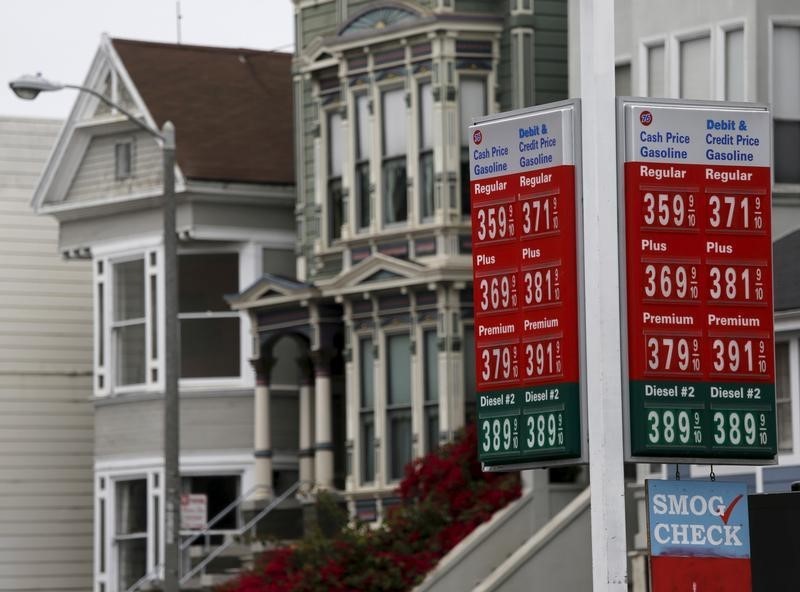WASHINGTON (Reuters) - U.S. consumer prices recorded their biggest drop in eight months in September as the cost of gasoline fell, but a steady pick-up in underlying price pressures should allay fears that a disinflationary trend was reasserting itself.
The Labor Department said on Thursday its Consumer Price Index fell 0.2 percent last month after slipping 0.1 percent in August. In the 12 months through September, the CPI was unchanged for the first time in four months after rising 0.2 percent in August.
Economists polled by Reuters had forecast the CPI falling 0.2 percent in September and dipping 0.1 percent from a year ago. The so-called core CPI, which strips out food and energy costs, rose 0.2 percent after ticking up 0.1 percent in August.
Low inflation, which has persistently run below the Federal Reserve's 2 percent target, is a major hurdle to an interest rate hike this year. Policymakers who are divided on when to tighten monetary policy could take comfort in last month's
increase in the core PPI.
Expectations of a lift-off in the U.S. central bank's short-term interest rate have been dealt a blow by an abrupt slowdown in job growth in the last two months and softening economic activity because of a strong dollar, lower oil prices
and a weakening global economy.
In the 12 months through September, the core CPI increased 1.9 percent, the largest increase since July 2014, after rising 1.8 percent in August. The Fed tracks the personal consumption expenditures price index, excluding food and energy, which is running well below the core CPI.
Last month, gasoline prices fell 9.0 percent, the biggest drop since January, after declining 4.1 percent in August. Food prices increased 0.4 percent, the largest increase since May 2014, after rising 0.2 percent the prior month. The rental index
increased 0.4 percent, after rising 0.3 percent in August.

(